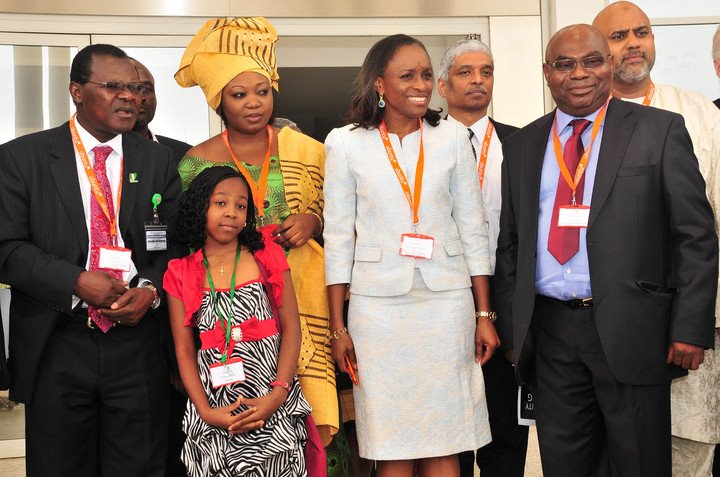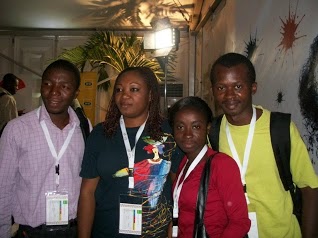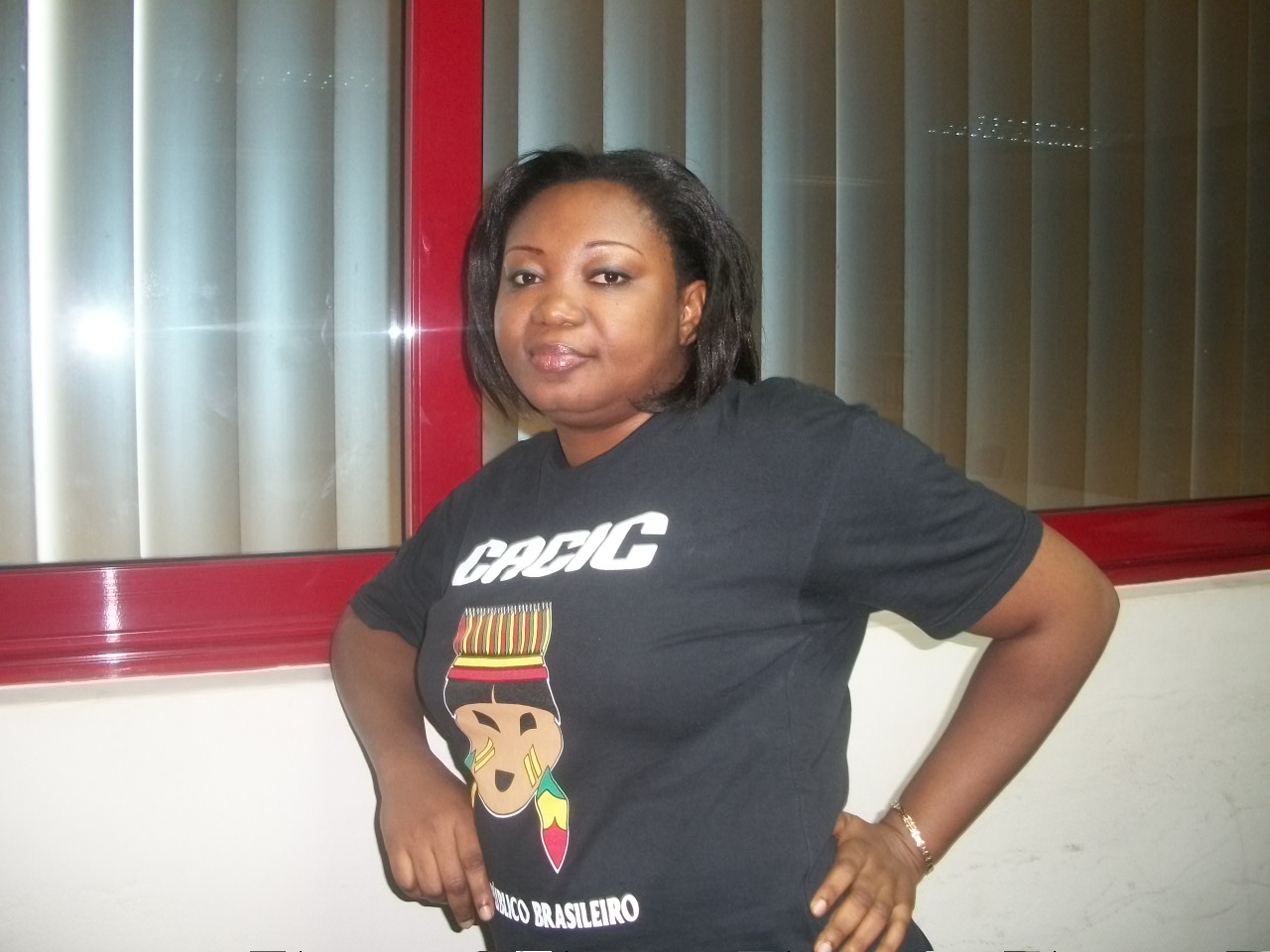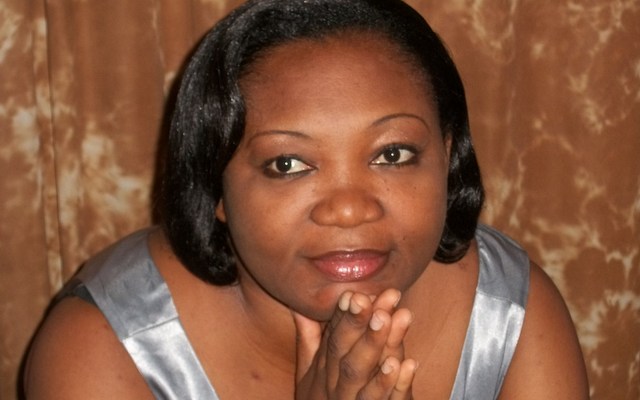Interview of the Month
She has gained professional experience from the African Development Bank (AfDB), The Helen Keller Foundation (HKI) The Global Digital Solidarity Fund (DSF), the Diplomacy Institute and the African Information Society Initiative (AISI). Co-founder of the African Civil Society on the Information Society (ACSIS) and the Free Software and Open Source Foundation for Africa (FOSSFA), Nnenna has lived in 5 different African countries, speaks 5 different languages, considers herself a global citizen and loves making positive development impact.
Founder of NNENNA.ORG, and Board observer of the Open Source Initiative (OSI), Nnenna is currently the Council Chair of the Free Software and Open Source Foundation for Africa, and in that position, the convener of the West Africa Internet Governance Forum and one of the early stakeholders in the upcoming Africa Internet Governance Initiative - AFIGF.
She has been working in the domain of ICT4D for over 10 years with governments, businesses, think tanks, development partners and the civil society.
1 - Women's access to ICTs in Africa has grown during the last decade.However, there remains a need to address affordability and the perception and attitude towards the use of ICTs by women. Where do you think technology can go in terms of empowering women economically, socially, protecting them?
I believe that technologies like mobile phones have proved to be great economic levelers for women. I am not sure about what men think of us, but I know most women are smart, we multi-task, we need to save money, we need things to be uncomplicated, and we need problems solved. So technology that is meant for us must be made to suit us, not ask us to change to suit them.
Granted, there is a disparity in the spending capacity of men and women across all income levels. So the more affordable ICTs are, the more they are welcome.
2 - How can we effectively use ICT to empower African rural women who have limited or no access to the internet but can easily acquire or access mobile phones?
Almost all mobile phones can access the Internet these days and a lot of applications are now lightweight enough to bypass the normal Internet Protocol and rather use SMS capacities. However, we need to stress the importance of Internet connection reaching rural areas. Fiber optics may not be the best options here. We may need to combine fiber with satellite and TV White spaces. It might not necessarily be a case of Internet Access for everybody, but the capacity to benefit from the Internet.
Let me explain: It is important that schools, hospitals, adminstrations and law enforcement in rural areas be Internet-enabled. In so doing, rural women will have assurance that their children going to school will have access to global knowledge, that the doctors and nurses taking care of them will have updated information on their illnesses and possibly get a remote doctor online to help. In Africa, we still trust service personnel and this is key in communalisation of capacities. I have seen villages that use only a limited number of email accounts. They have trusted people to serve as "focal points".

3 - How do we extend the success of the mobile-phone based money transfer service like M-Pesa in East Africa to information sharing with the ordinary African woman?
M-Pesa is not an information sharing service. It is a financial service that qualifies in the terms of what I was referring to in having "technology that suits women". I believe that the lessons we need to learn from M-Pesa is how easy it is to sign up and use. Have you seen how jealous banks have become? The individuals who are using M-Pesa have been there all this time. And nobody bothered to bring technology down to their level. I think that M-Pesa proves that we are not as poor as people think. Once we know that a technology solves real problems, you will be surprised at the buy-in. So let us make things simple, hassle-free, and straight to the point.
4 - What is the best way to increase the access to ICT across the African continent?
Borrow from "developed" countries. We seem to be downplaying the role of schools and the potential of a woman who can read and write. If someone cannot read and write, 70% of the Internet's content is lost to the person. We need Africans who are literate to have Africans who are ICT-literate. Let me call attention to Tunisia, whose laws require that every child be in school until they are 16. And let me also use this opportunity to express my total objection to child marriages, in the framework of on-going debates in Nigeria.
So for me, access is on two levels: provision of bandith, that is infrastructure, and readiness, that is literacy. Both need to meet at a point.
5 - Where should a priority focus be, on improving the access to ICT or on what can provided through ICT?
Five years ago, I would have said both. But today, it is clear that the whole world is scrambling after Africa and other developing nations as the next new big market. This is the time to leverage on the "what can be provided" and make sure that ICTs do get to the real development needs of the people. We need human rights like freedom of information, right to expression, education, health, association etc. We need transparency in public management of national resources. We need democracy. We need good governance. We need to fight corruption. We need public accountability of office holders. I think ICT can play a huge role in these areas.
6 - How can open source technology empower African women?
Open technologies allow users to undertand them. They are in the same perspective of openness in governance and adminstration. For me, it was open source technology that gave me wings. I used to think that technology was for some select group of very savvy men. But open source technology proved me right in what I had always believed: that "given the opportunity, anybody can learn anything, as long as they put their mind and focus to it, and even excel". Today, I even surprise myself in what I can do. Tell me, if not for Open Source technology, how can someone whose training is in Social Sciences, History, Linguistics, International Relations, Law and Policy end up as one of the 10 most influential IT women in Africa?

7 - Do you think digital storytelling/digital information sharing is a good way for African women to have their voices heard?
I blog. I tweet and I share stories on many other platforms. It is important for people to tell their own stories. I stongly believe in citizen-generated information. And the Internet is the perfect place for this. I have written stories and taken pictures that have traveled far and wide. These days, any media house worth its salt knows that the media landscape has changed, and people want to hear from people. In Côte d'Ivoire, where I live, we are raising a generation of media-ready citizens. People who can take photos and report. Personally I can publish information online with or without an Internet connection. You need to learn how to do it. It saved my life one. It has saved the lives of some friends. It may save your life.
8 - What is your advice for start-up organisations for designing and framing their ICT training program?
Don' t make it a program. It is a deception to think that knowledge resides on one side. Make it a partnership. If you think you are training people, bend low and listen to them. And you may find out that their wealth of knowledge is far beyond your imagination. We can explain how new technology works to people, but let us be humble enough to let them now explain to us how they plan to use "our technology" in their own way, to solve their own problems.
Bottom line is, be an enabler, a partner, a mentor. Do not aim to be a teacher.

Nnenna Nwakanma | Founder and CEO, NNENNA.ORG | Consultants
Information | Communications | Technology and Events | for Development
Website: http://www.nnenna.org
Email: This email address is being protected from spambots. You need JavaScript enabled to view it.
Twitter: @nnenna
Blog: http://nnennaorg.blogspot.com

